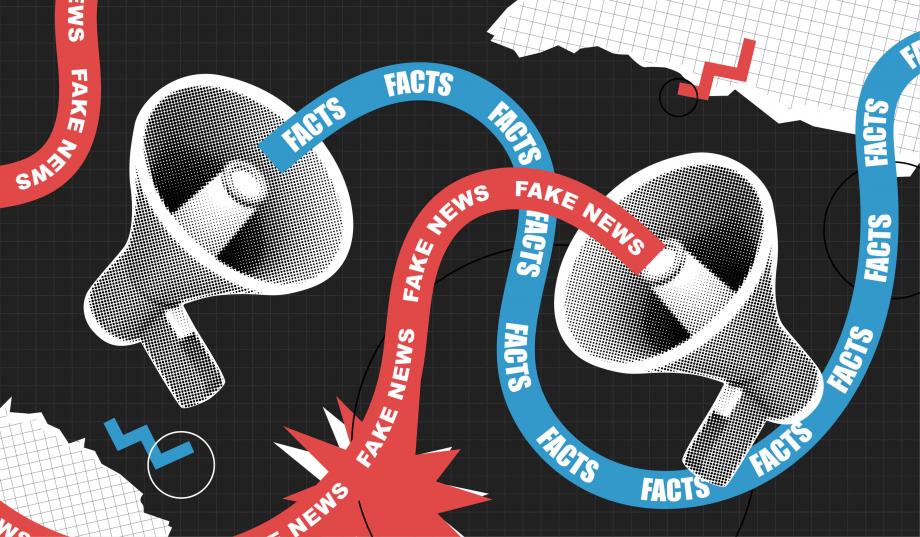Common Tactics to Spread Disinformation: Cherry-Picking Data

Disinformation is complicated: There are numerous ways to mislead an audience, and those seeking to mislead often include a hint of truth in their narratives to make their messages more believable. Cherry-picking survey data, a technique often used by malign actors, is a perfect example of this.
On February 22, 2024, a Hungarian online portal biased towards the ruling Fidesz party published an article that reported on a “dramatic development” in the Ukrainian war, making Ukrainian President Volodymyr Zelensky “scared.” According to the article, the Kyiv International Institute of Sociology (KIIS) found that 72% of Ukrainians believe peace should be negotiated with Russia, which is 13 percentage points more than “earlier.” The portal also included a hyperlink to a Russian-language article on the topic posted by Izvestia, a pro-Kremlin paper headquartered in Moscow.
The source material
If more than two-thirds of the Ukrainian people truly wanted to see their government negotiate peace with Russia, that would indeed be a “dramatic” development. Since the Hungarian article clearly named the original source of their claim, a KIIS survey conducted from February 5 to 10, 2024, it was not particularly hard to assess if their claims were accurate. The survey itself is fairly easy to find, and KIIS provides an English summary of it on their website.
The fact that a Russian outlet was quoted by a Hungarian journalist rather than the original research could indicate one of two things. First, it is possible that the author wanted to publish a piece of news quickly, but they failed to properly investigate the source material, making it a professional mistake. Second, it could be that the Russian article was quoted because the author had malign intentions from the start and wanted to present their audience with facts that supported the “pro-peace” views of the ruling Hungarian party.
So, do 72% of Ukrainians want negotiated peace?
The answer to the question is no. 72% of Ukrainians agree that “in addition to military means,” Ukraine should look for a diplomatic way to end the war with Russia. However, neither the Hungarian online portal nor Izvestia mentioned this. Unlike Izvestia, the Hungarian article also failed to mention that the “earlier” data was from May 2022. The issue with this is that in December 2023, 72% of Ukrainians already supported Ukraine trying to end the war via diplomatic means besides waging war. Thus, this “development” is not a recent one; it had happened at least two months before the article was published.
The two articles seeking to disinform their audience also missed some other information from the survey. First, 89% of respondents said Ukraine would win the war, while 4% said Russia would. More than 50% of Ukrainians said the war would end with the complete restoration of Ukraine’s territories, including Crimea and the Donbas, while a further 14% said the war would be taken into Russian territory. 73% of Ukrainian respondents said they would endure the war “as much as it will take,” compared to 18% who said they could only endure it for “a few months.”
Finding the source material is key
Actors seeking to mislead audiences often only present data in a way that suits their narratives, which can be countered best by looking for the original source. Unfortunately, malign actors often seek to hide the source of their claims – and this case proves just why they usually do that.
The survey results show that President Zelensky and Ukrainian leadership actually have little to fear about the Ukrainian population not backing the war effort. In fact, the data shows strong unity behind Ukraine continuing the war, even if – as the KIIS itself notes – the complete optimism of the early days of the war has somewhat faded.

Research Fellow, Centre for Democracy & Resilience